Featured News
October Meeting Eden Valley Basketry Group
03 November 2025
Additions to the What's On section of the website02 November 2025
Categories
- Hepple
- General
- Etal
- Lucker
- Whitley Chapel
- Borders
- Weardale
- Cullercoats
- Tees Valley
- Broadrake
- Eden Valley
Join our Mailing List
Receive the latest news direct to your inbox by signing up below :
The King's Award For Voluntary Service
It has been very difficult to keep this quiet, but we can finally proudly announce that -
WE HAVE BEEN AWARDED THE KING'S AWARD FOR VOLUNTARY SERVICE!

Northumbria Basketry Group (NBG) has been recognised with The King's Award for Voluntary Service, (KAVS) 2025. This is the highest award a local voluntary group can receive in the UK, and is equivalent to an MBE.
The King's Award for Voluntary Service recognises outstanding work by local volunteer groups. It was created in 2002 to celebrate Her Late Majesty, The Queen's Golden Jubilee and was continued following the accession of His Majesty, The King. 2025 marks the third year of The King's Award for Voluntary Service.
Recipients are announced annually on 14th November, The King's Birthday.
Representatives of NBG will receive the award crystal and certificate from Dr Caroline Pryer, Lord-Lieutenant of Northumberland, in the coming months. In addition, two volunteers from the Group will attend a Royal Garden Party at Buckingham Palace or Holyrood House in 2026, along with other recipients of this year's awards.
Katie Scott, from Coquetdale Creatives, with additional information added by Alan, writes about the award, and about our Group.
The Basketry Group's history is a remarkable story of the rebirth of basketry in Northumberland, through the hard work, skills, and talents of some quite remarkable, and selfless, volunteers.
Virtually all human cultures, from almost all over the world, have made baskets. Using whatever natural resources they could find, weaving them, and turning them into receptacles.
There were all sorts of different types and shapes of basket, depending on their purpose, whether to carry fish, clay, textiles, and so on. Being less fragile than pottery, and some even able to hold water, baskets of all shapes and sizes are a part of our human history.
The oldest known baskets have been shown to predate pottery vessels. Some have been carbon dated to well over 10,000 years ago!
Baskets made from all sorts of materials have been used by humans all this time and continue to be.
Nowadays, however, (unfortunately) most baskets and containers are made from plastic. Willow baskets fell out of fashion when other materials became more commonplace. The skills needed to create the baskets which make up the Northumbrian heritage had very nearly been lost. Thankfully, the work of the Northumbria Basketry Group has ensured that these ancient skills are recognised and continued.
The Group's story begins back in 2006, when Northumberland County Council organised adult education classes in Rothbury. One of the classes offered proved very popular. This was Basketry. The course engendered in the participants a strong love of willow, a desire to learn more about it, and the aspiration to hone and learn new skills.
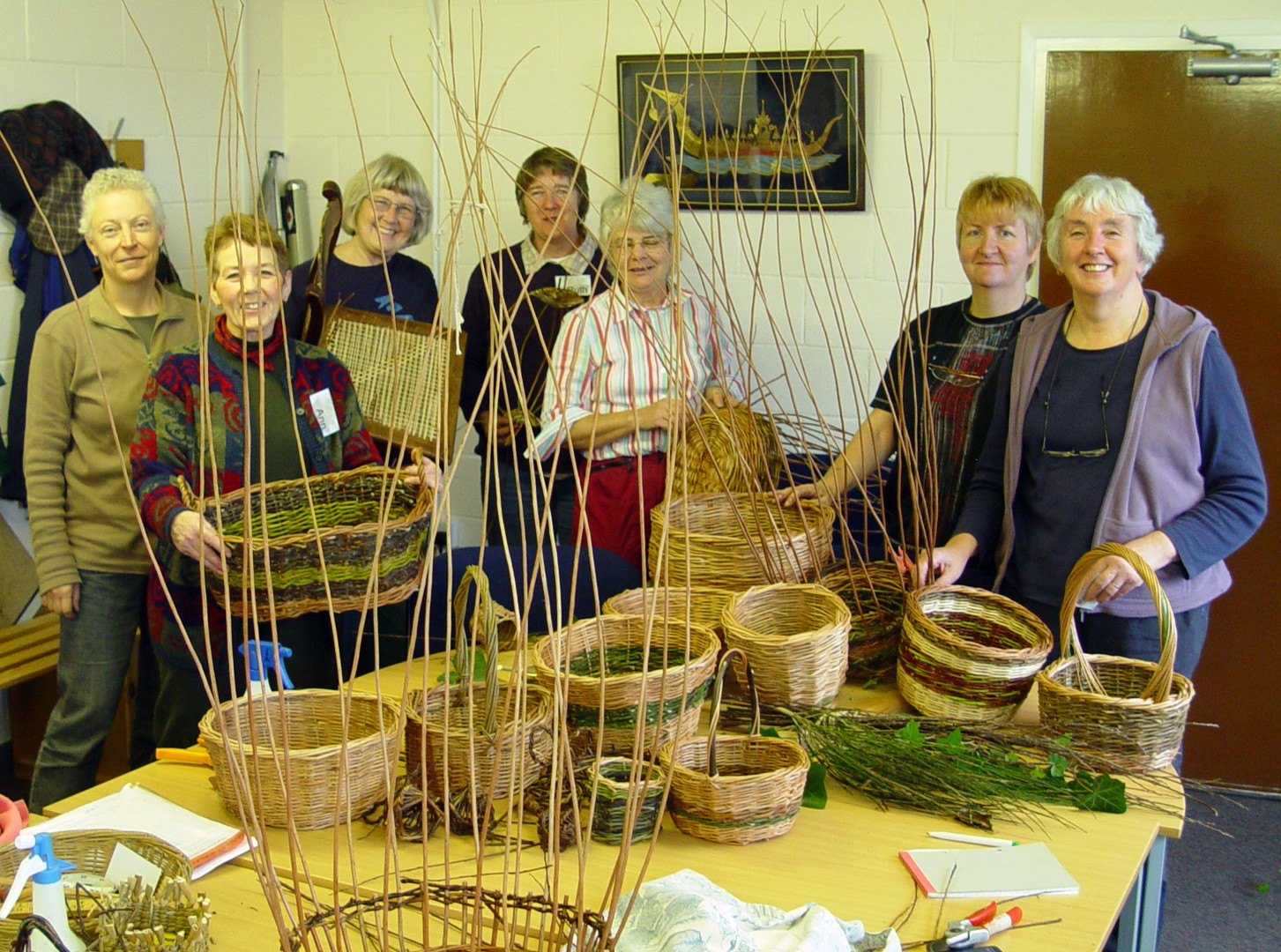
2006 Class Photo
In 2007, the Coquetdale Basketry Group was established. The ethos remains the same today, as at the inception. The groups are supportive and friendly, led by volunteers. Each member shares their knowledge and skills.
By 2009, a core group of members had secured funding for a 3-year programme of basketry courses, research, and willow cultivation. The original financing tranche was £10k, and the choice of the three elements—heritage, growing willow, and basketry courses — was the optimal choice.
In February 2010, the Group had access to some land at Whitton where they worked hard to establish their first willow plot1. Here, they grew willow in a range of stunning, glowing colours. The plot was very productive, but unfortunately, it had to be moved in 2017. And again in 2019.
Eventually, after a great deal of hard graft, the Group turned part of an empty field into the stunning, productive plot they currently operate at Chester Hope. The site is exceptional, with plenty of sunshine and moisture. Here they grow a range of willow, including 'Calliantha', 'Bleu Bleu', 'Trustworthy', and many more poetically sounding varieties. The income from this site is used to subsidise beginners' basketry courses throughout the Group.
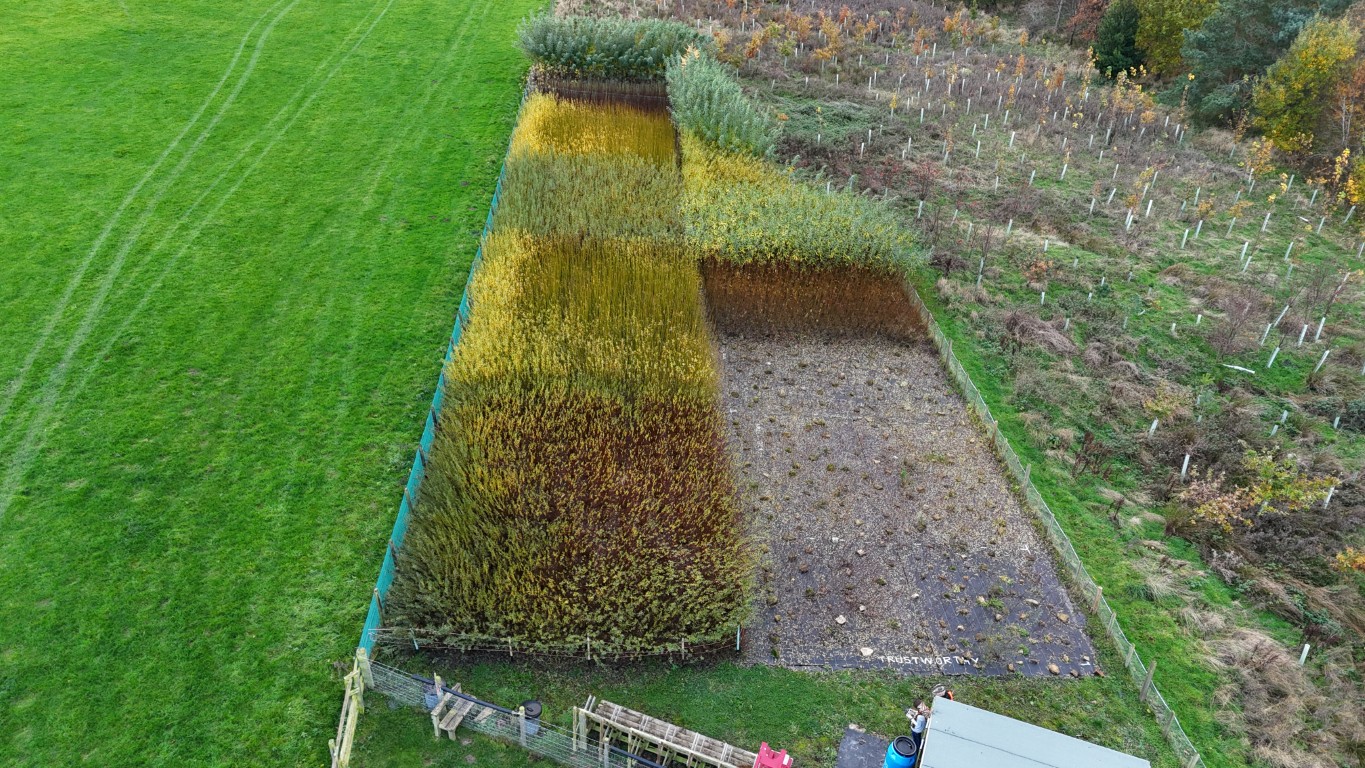
Drone view of Chester Hope plot
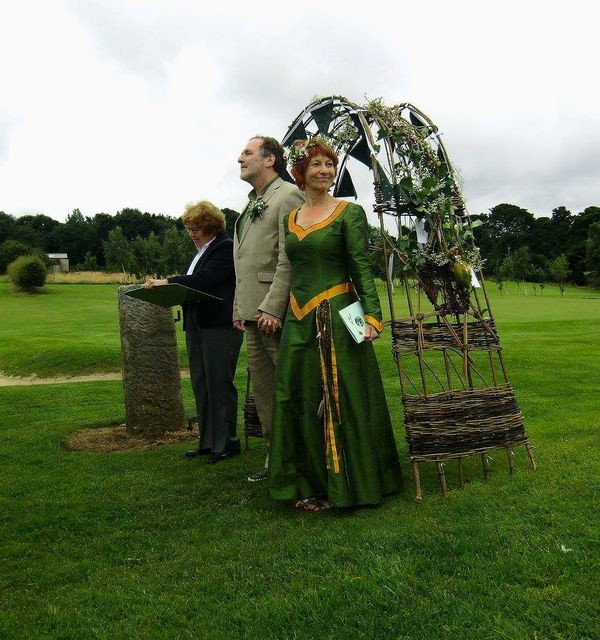
Katie with John in front of the arch
I first came across my local willow group over ten years ago when my then partner, now husband, John and I decided to have our hand-fasting under a home-made willow arch. I am a remarkably impractical and quite clumsy person, so the fact that I succeeded in making a beautiful arch is a testament to the skill and patience of the very talented Charlotte Boxall, who helped me!
After the first basketry group was established, in 2010 a second group began in Etal, followed by another in the Tyne Valley, and in Lucker, in 2011. The enthusiasm and skills displayed by the first Group were spreading, aided by the Group attending village shows, and taking contact details for people interested in taking beginners' basketry classes.
The North East has a rich heritage in making 'Fishwife's Creels', baskets used extensively in the heyday of the herring fishing industry2 & 3. One of the NBG members, Liz Balfour, the tutor of the original 2006 class, researched the history of baskets in Northumbria. In June 2010, this research resulted in the weaving of many Fishwife's Creels when NBG hosted the Annual Summer Meeting of the National Basketmakers Association in Rothbury.
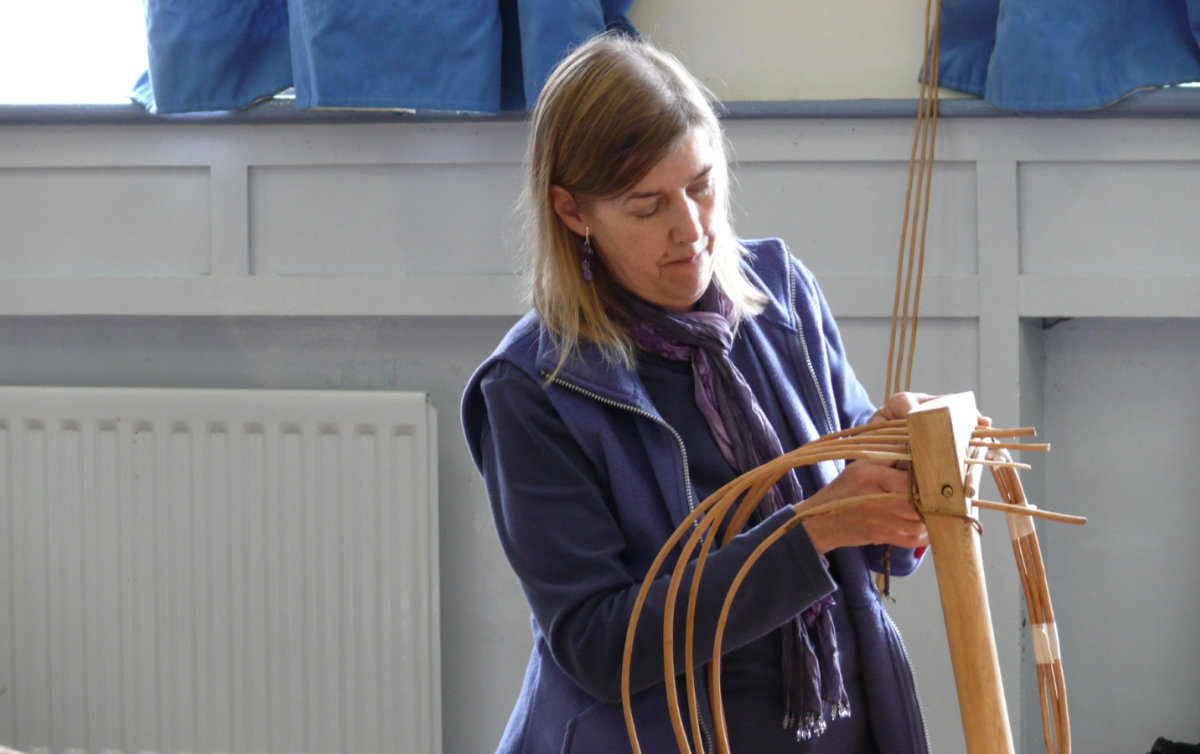
Sheila Walton making a creel at the Summer Meeting
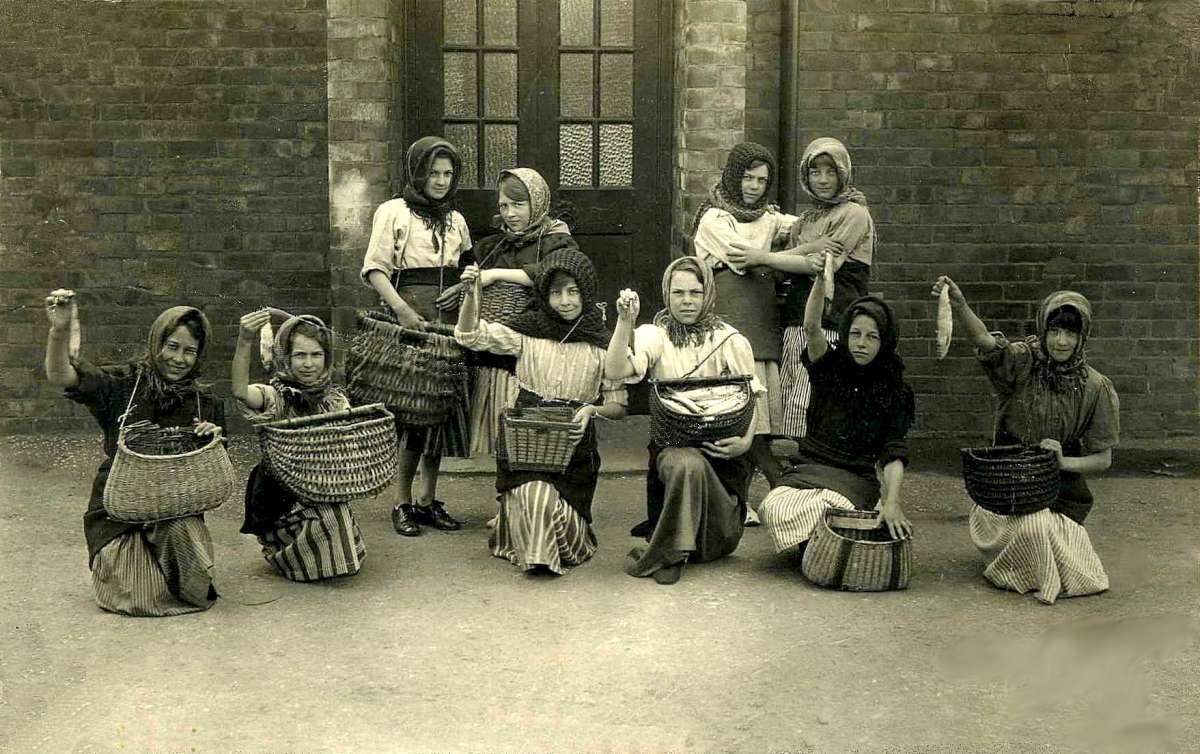
The cast of a play at a school in Seahouses 1923 - photo Jean Jackson nee Smailes
Out of this came a vital heritage project: 'The Northumbrian Fishwife's Back Creel Project', culminating in a book 'The Fishing Baskets of Northumbria'
More recently, A 'Northumberland Fishwives' Creel Workshop', was held in 2022 on, appropriately, Lindisfarne. Led by a professional basket maker, Anna Turnbull, an NBG member, students spent a weekend in early November learning the skills to make a basket included on the Red List of endangered baskets in the UK.
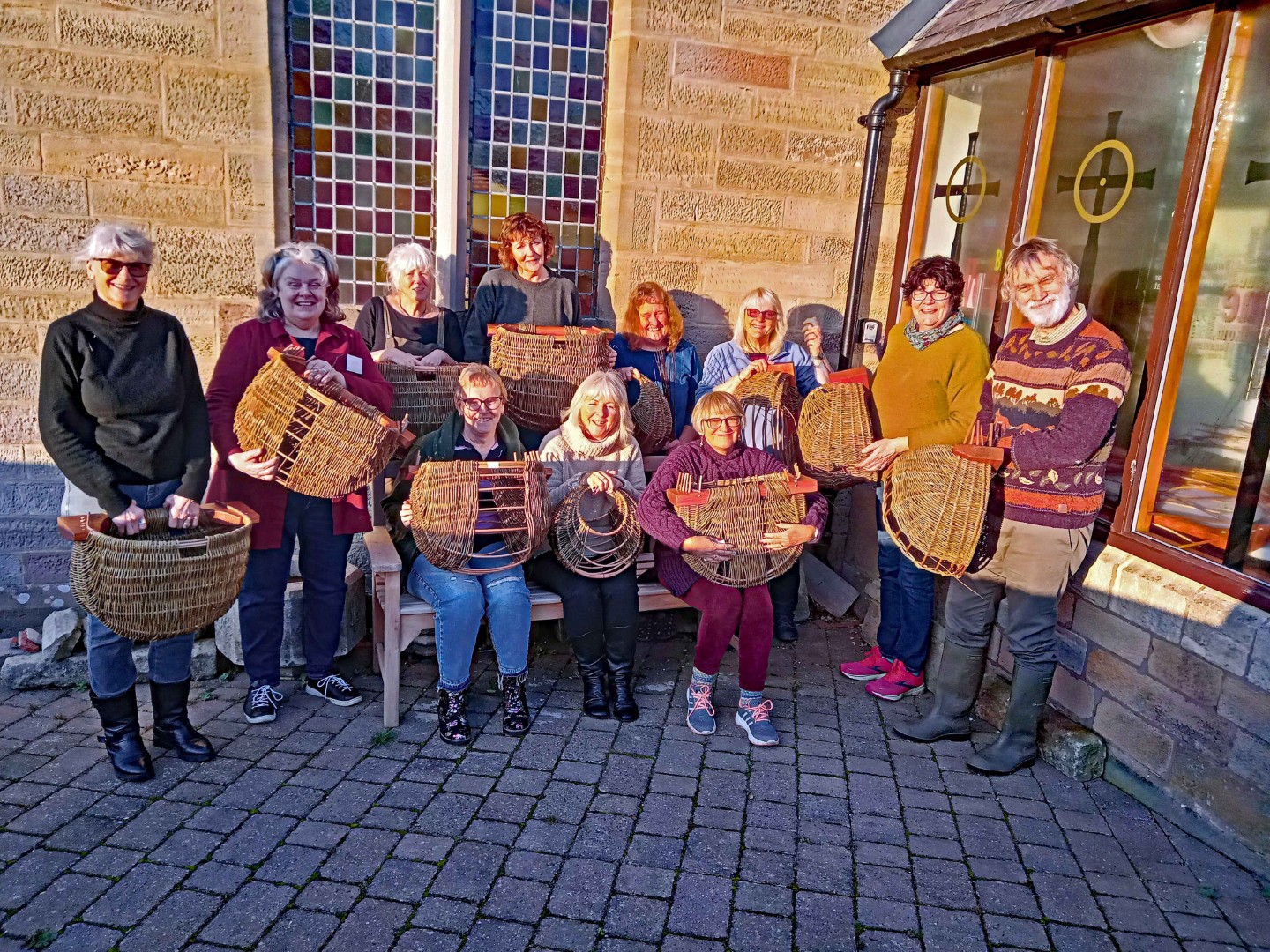
Anna Turnbull’s class with creels – photo Anna Turnbull
Between 2011 and 2024, NBG Learning Visits took place, adding an international dimension to the knowledge and skills these volunteers have developed. Members have been to Sweden, Connemara, Valencia, and Slovakia, sharing their knowledge and bringing back what they discovered in other countries. Visits in 2011 and 2012 to Somerset Willow Growers helped in sharing, learning about, growing and caring for the willow
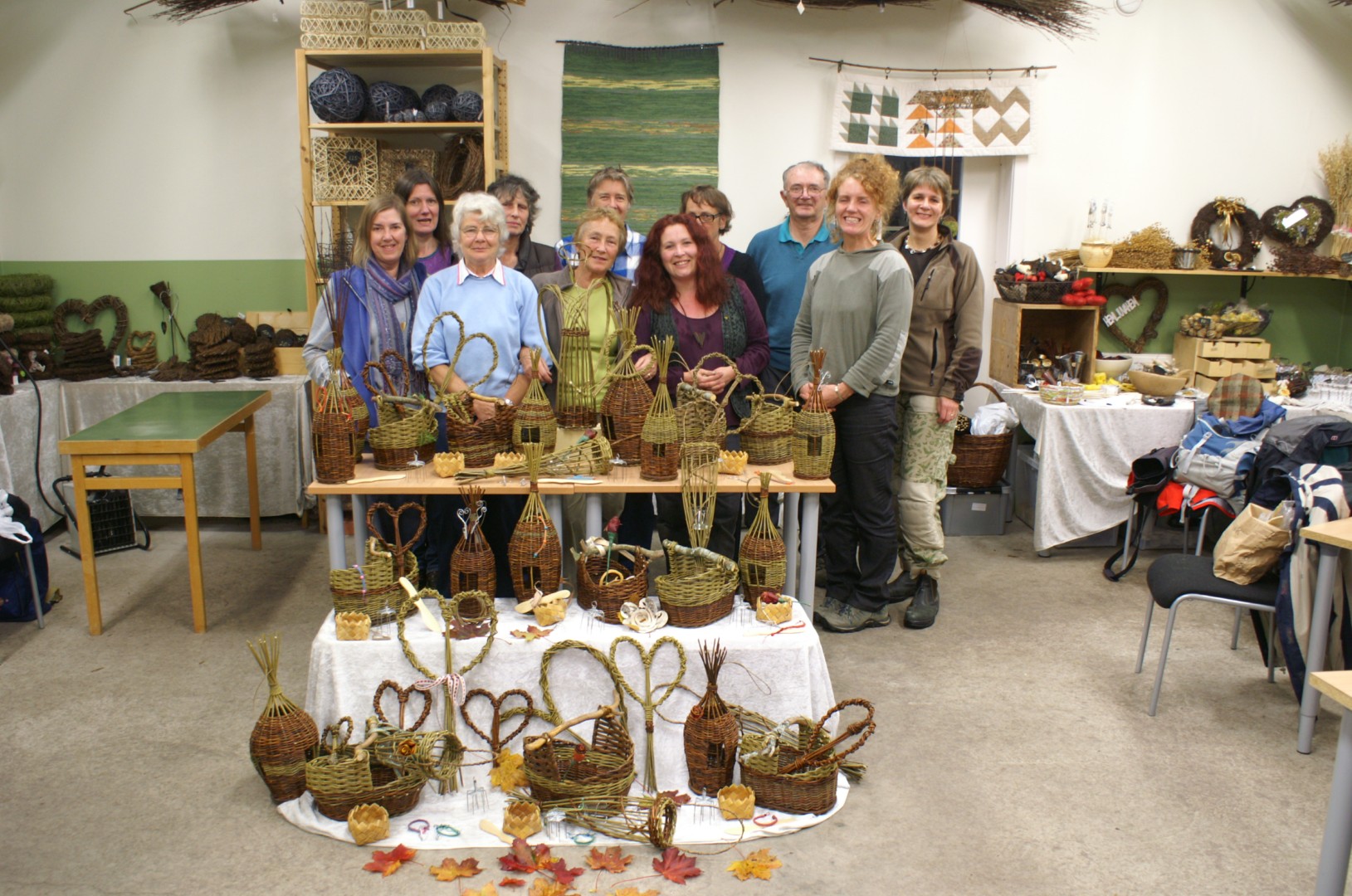
NBG members visiting Sweden 2011
In 2017, the Northumbria Basketry Group celebrated their tenth anniversary. To commemorate this milestone, the Group held a highly successful touring exhibition, 'Weaving Our History', which visited six sites in Northumberland and Durham. As a direct result of this initiative, the Weardale Group formed.
As more people began to take an interest in willow weaving, further groups sprang up. By 2023, more groups had formed in the Borders, Broadrake, and the Tees Valley. Cullercoats, the first urban Group, was also set up. In May of that year, another successful event was held: 'Summer Gathering in Wooler.
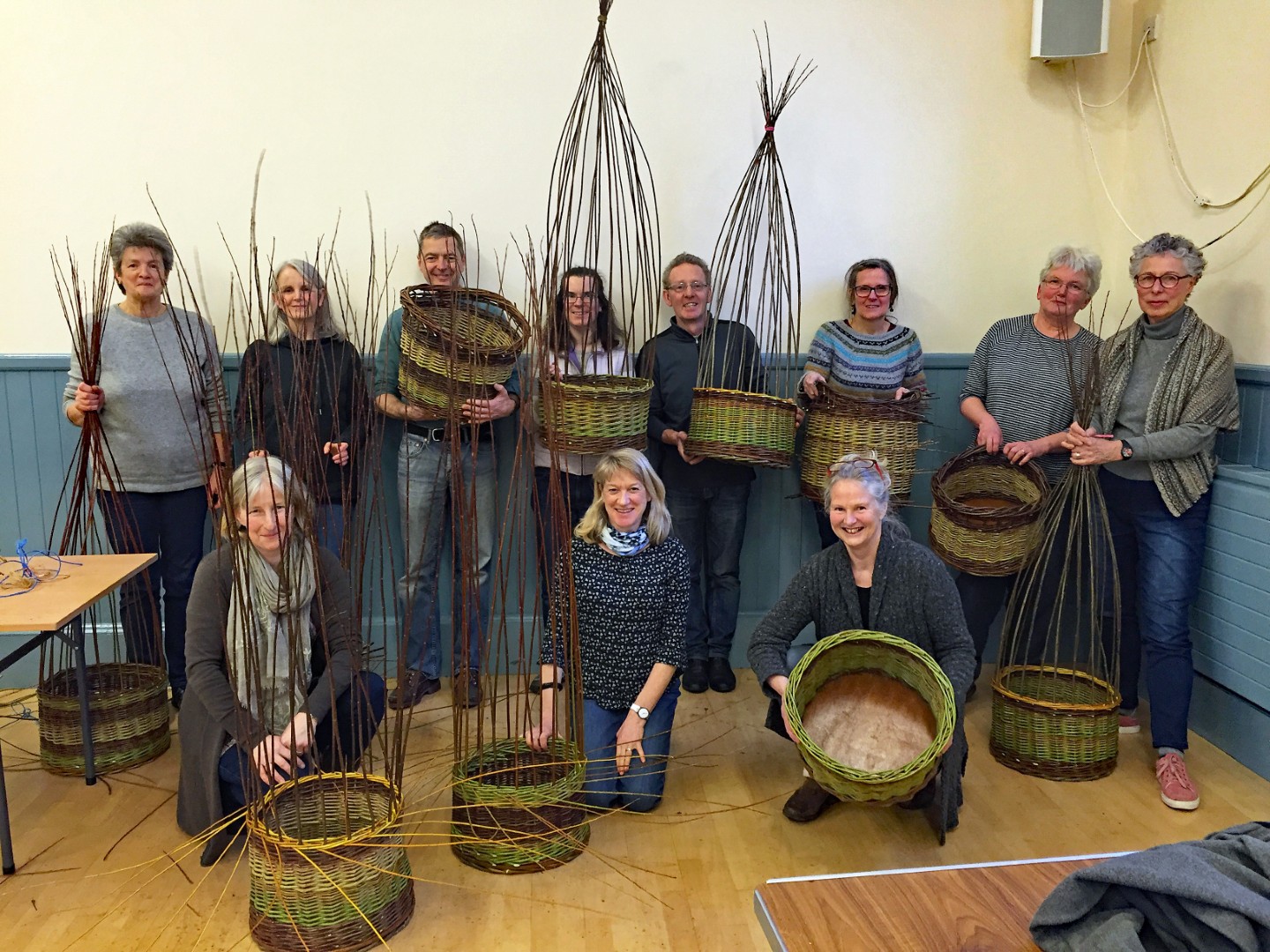
A Borders self-help group at Bowden
Now, in 2025, ten groups are operating across the region, stretching from the Scottish Borders, the Tees Valley, the Eden Valley, and many points in between.
Some members of Rothbury Climate and Nature (CAN) thoroughly enjoyed a tour of the willow plot at Chester Hope in November 2024.
After the tour, we were shown exactly how to harvest the willow rods. I was using an electric secateurs! Vinions electric shears - used in France for pruning vines. This made the work a little easier for my arthritic hands!
It was so easy to understand our tasks; everything has been arranged to make each step straightforward. Alan lives by the rule of 'for the next man' (person). That is, do your task thoroughly so that the next part of the work is straightforward for the next person. This leads to willow rods of a consistent and very high quality.
We cut off the rods which were too short, or had died, leaving the stools to hibernate until the spring, when they will leap into life again!
The best rods are placed in height order. It is a fantastic, simple, system. Making the whole harvesting and sorting as straightforward as it can be.
Besides the growing of the willow, the weaving of the baskets is a sight to behold. The members of the groups are so skilled. What they produce truly is remarkable.
The Northumbria Basketry Group is a fantastically positive success story. It is a tale of mutual support, of welcoming friendliness, of reciprocity. The willow stools at the plots capture carbon and provide beautiful rods for weaving into wonderful creations. The members are constantly learning and sharing knowledge. They are keeping an endangered heritage craft alive while delivering social and cultural enrichment in their groups.
They certainly deserve the King's Award for Voluntary Service.
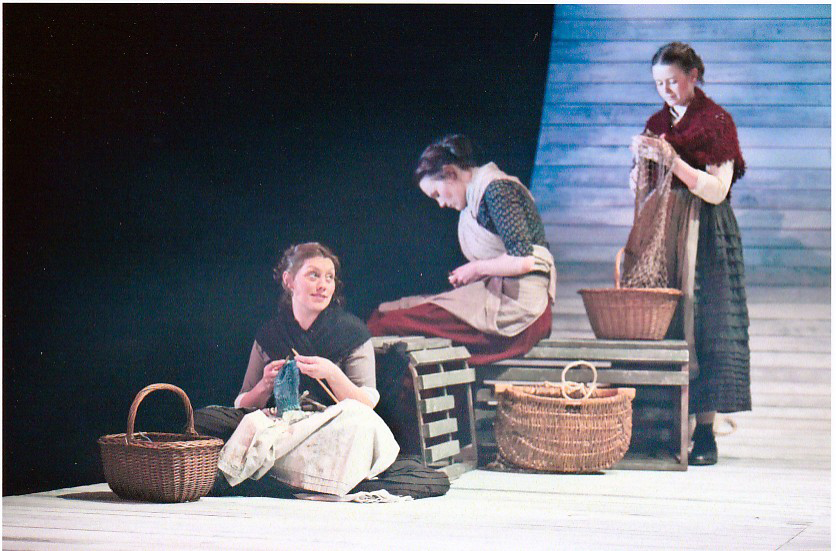
Text Notes
- For information about the Cultivation and Use of Basket Willows – a guide to growing basket willows, is available from the Group.
- For more information about the zenith of the herring industry and the lives of Fishwives of Cullercoats with their baskets, see the wonderfully illustrated book "Winslow Homer in England" by Tony Harrison.
- In 2010, the Live Theatre in Newcastle staged a play, "A Northern Odyssey" by Shelagh Stevenson, that explored the reasons why Winslow Homer spent almost 2 years in Cullercoats. NBG supplied the Fishwife's Creel that featured in the play
- The book, 'The Fishing Baskets of Northumbria' is available from the Group.
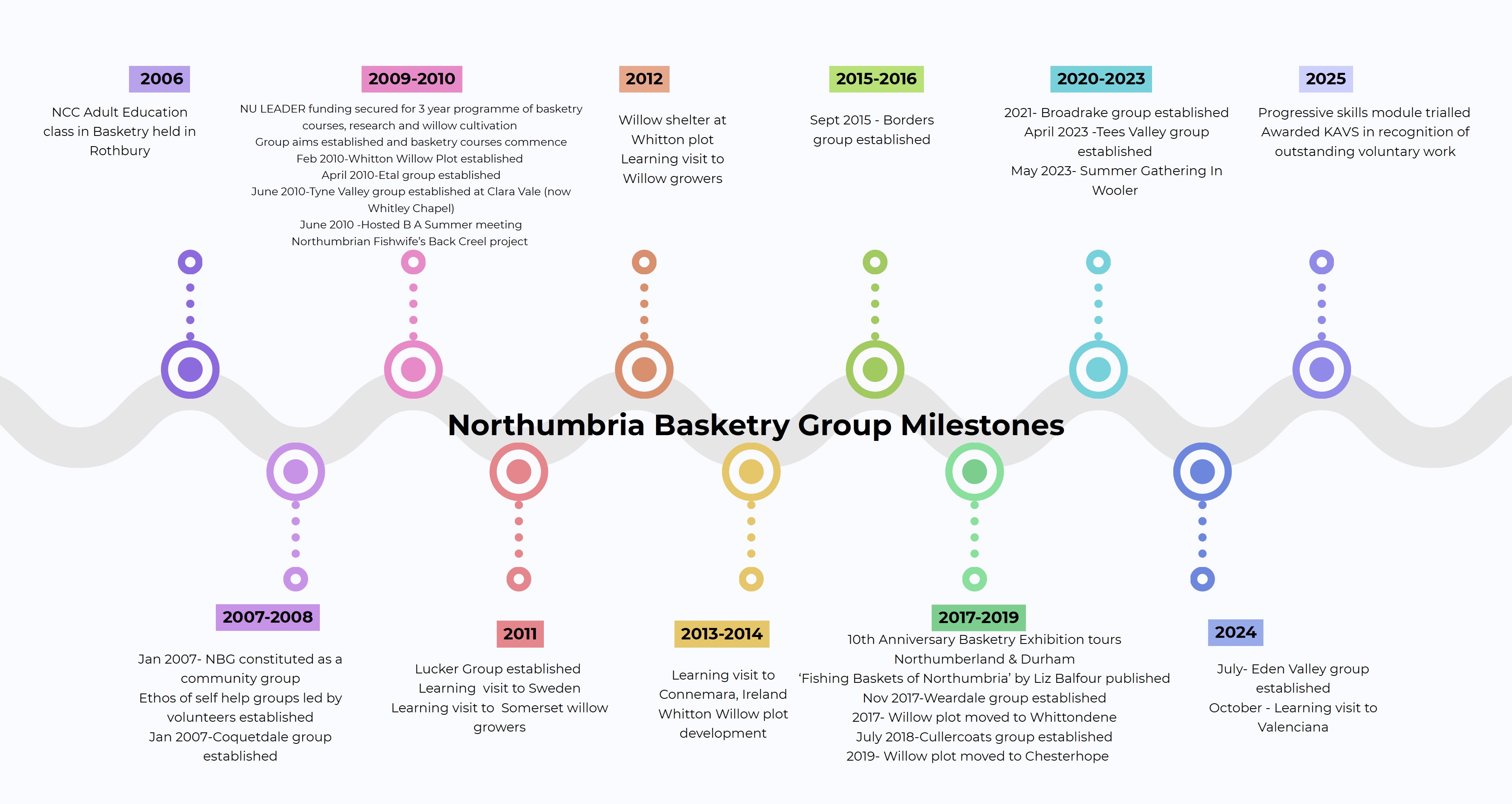
Author Details
Author Name: Alan WinlowPublish Date: 14th November 2025



















